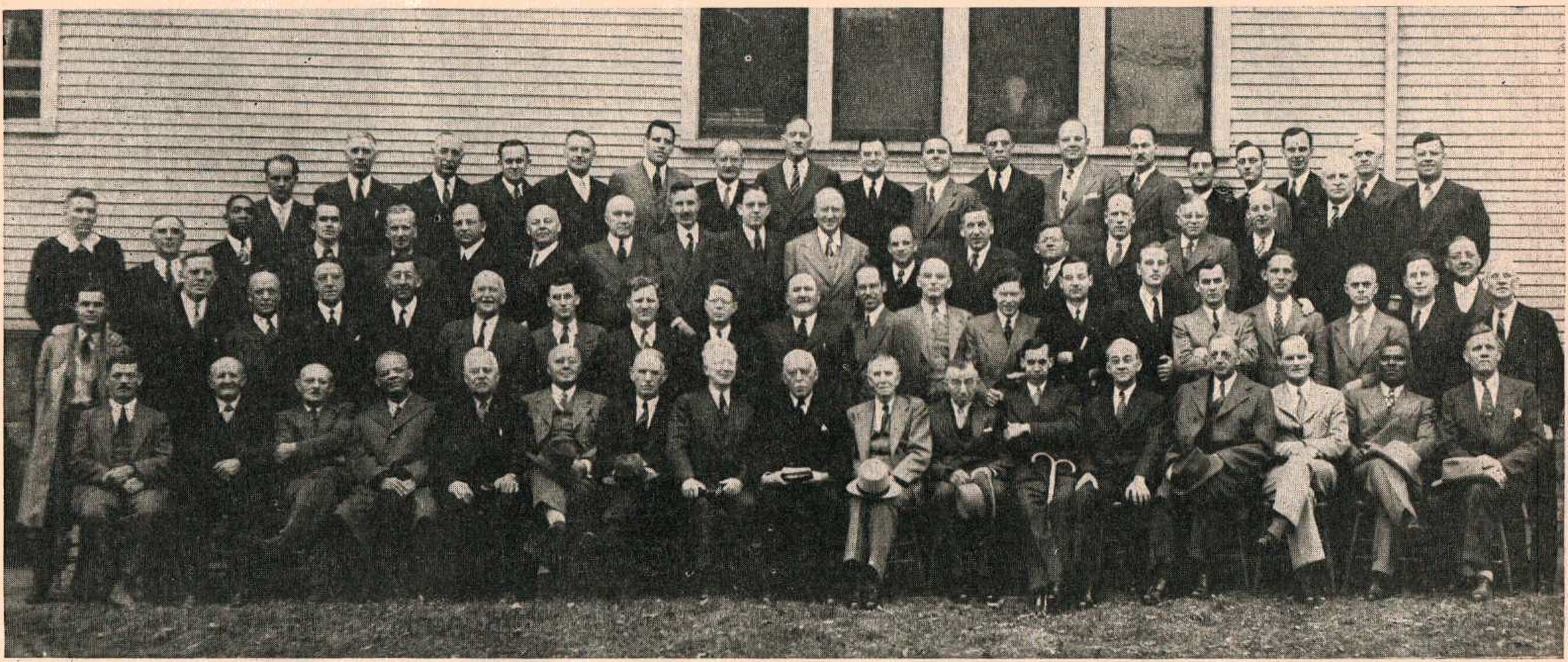Monday January 21, 2019
"The Christian Worker's Conference" in Grand Rapids, Michigan in 1944
"Christian Workers Conference, Grand Rapids, Michigan, November 7th, 8th, 9th, 1944
The Christian Workers Conference held at Grand Rapids, Mich., was a very profitable time for the good number that attended. The Christians from both Assemblies were gracious hosts. More particulars will be given in next issue, D. V."

Reading from left to right-
Row 4-George Leest, Peter Pell, Wm. Pell, 0 . Hoffman, G. Coombs, J. Smart, W. G. Smith, F. W. Schwartz, W. Brown, F. Detweiler, T. Williams, R. W.P ike, E. Harlow, J. M. Martin, W. Belch, J. Balsam, J. Nieboer, A. Ludwick.
Row 3--J. Grace, F. Pelon, E. J. Fort, J. Sietman, H. K. Downie, C. Lacey, T. Lacey, A. Cotton, W. Cooper, W. McCartney, L. G. Walterick, D. Lawrence, J. Scollon, F. E. Trulli, C. Van Ryn, T. B. Gilbert, W. Murray, R. M. Winslow.
Row 2-E. Beck, C. Bulander, C. Bellinger, W. Munro, H. Armerding, J. Grosholz, B. Smith, K. Pfaff, A. Rodgers, G. Law, D. Tyler, Mr. Henschelwood, V. Schlief, A. Peterson, B. Tuininga, C. McArthur, C. Johnson, D. Taylor, S. Ledyard, D. Fraser, L. VanRyn.
Row 1-C. Trowbridge, Mr. Greer, C. Hausman, B. M. Nottage, H. Miller, H. Becker, N. Kion, P. D. Loizeaux, Duncan Fraser, P. Pelon, E. Froh, H. Stadt, F. Vander Til, A. E. Horton, J. Drougsville, A. Van Ryn.